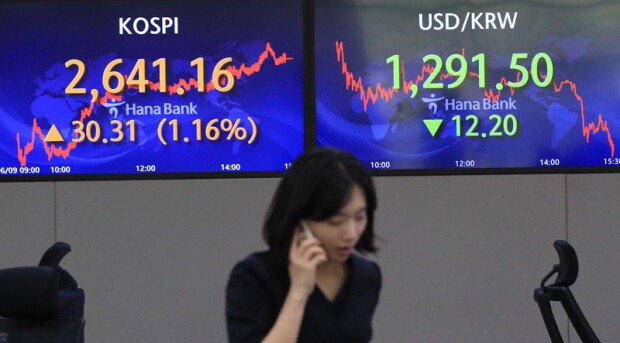FDI sets new record high
FDI sets new record high
Posted June. 10, 2023 08:38,
Updated June. 10, 2023 08:38

Foreign direct investment (FDI) into South Korea has increased by 40% this year compared to the same period last year. This is due to the U.S.-China economic hegemony war, which has caused global companies to adjust their investment strategies in order to reduce 'geo-economic' risks. While the Korean economy is experiencing side effects such as a decline in exports due to the US attempt to decouple the supply chain from China, the increased FDI is seen as a windfall for Korea thanks to its key companies in the high-tech sector.
FDI investments reported to the government so far this year have totaled $10.73 billion, equivalent to about 14 trillion won. This represents the largest amount on record for the period from January to May. Eighty-five percent of the FDI consisted of 'greenfield investments,' where foreign companies establish production facilities in Korea, and this category also saw a 62 percent increase. There was a rapid increase in investment by global semiconductor equipment and materials companies, whose main clients are Samsung Electronics and SK hynix, as well as battery raw materials and materials companies targeting LG Energy Solutions, SK On, and Samsung SDI. Even Chinese battery companies, unable to export directly to the U.S. due to the implementation of the U.S. Inflation Reduction Act (IRA), are establishing joint ventures in Korea.
While foreign investment has been a welcoming factor as the Korean economy's capital investment is shrinking, what is concerning is that sustaining the increase may not be easy. This is due to competing countries making efforts to attract investments by offering various support measures. For instance, Japan subsidized nearly half of the investment for Taiwan's TSMC, the world's leading foundry, to establish a plant in Japan, and is currently in talks with TSMC to build a second plant. Similarly, in Europe, France is enticing FDI with aggressive investment support measures.
Moreover, under the pressure of the U.S. “Buy America” policy, Korean conglomerates are making more than 100 trillion won of investments in the United States. More investment flows out of the country than comes in. However, if the global supply chain becomes divided into two major blocs, the U.S. and Japan, the operating space for Korean companies will be significantly reduced.
Korea's best defense strategy will be to create an investment-friendly environment that is attractive to companies from around the world. However, the metropolitan areas, which foreign companies prefer for investment, are hindered by regulations. The country's corporate tax rate competitiveness is also among the lowest in the Organization for Economic Cooperation and Development (OECD), posing a problem. The Serious Accident Punishment Act, which penalizes CEOs for workplace fatalities, is a major obstacle to foreign investment. Unless high investment barriers are swiftly removed, the sudden increase in FDI is likely to be nothing more than a fleeting trend.







